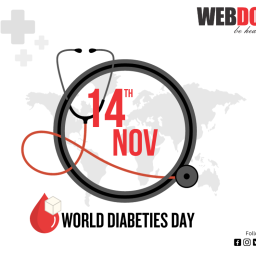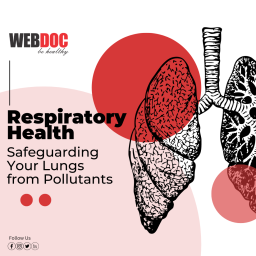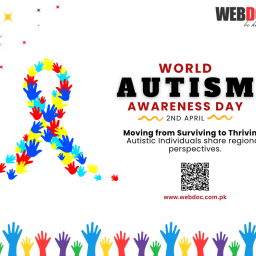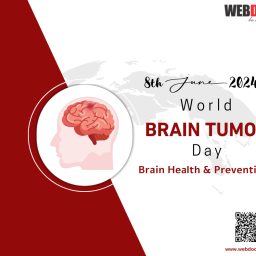Honoring the Backbone of Healthcare
Introduction:
International Nurses Day, celebrated annually on May 12th, pays homage to the remarkable contributions of nurses worldwide. This significant day coincides with the birth anniversary of Florence Nightingale, the founder of modern nursing and a pioneer in healthcare reform. As we commemorate International Nurses Day, it’s an opportune moment to reflect on the pivotal role nurses play in delivering quality healthcare, advocating for patient rights, and driving positive change in the healthcare landscape.
The Historical Significance of International Nurses Day:
The roots of International Nurses Day can be traced back to the early 20th century when nurses’ contributions to healthcare began gaining recognition on a global scale. However, it wasn’t until 1974 that the International Council of Nurses (ICN) officially established May 12th as International Nurses Day. This date holds special significance as it marks the birthday of Florence Nightingale, whose pioneering work during the Crimean War laid the foundation for modern nursing practices.
Florence Nightingale’s legacy continues to inspire nurses worldwide, serving as a beacon of compassion, professionalism, and innovation in the nursing profession. Her tireless efforts to improve patient care, promote hygiene and sanitation, and advocate for nursing education laid the groundwork for the modern healthcare system we know today.
Themes of International Nurses Day:
Each year, International Nurses Day is celebrated with a specific theme that reflects the current challenges and priorities in nursing and healthcare. Themes often address issues such as nursing leadership, patient safety, healthcare equity, and the role of nurses in addressing global health crises. These themes serve to raise awareness, foster dialogue, and mobilize support for the nursing profession.
The theme for International Nurses Day 2024, for example, might focus on the resilience and adaptability of nurses in the face of the COVID-19 pandemic, highlighting their heroic efforts on the frontlines and the importance of supporting their well-being and professional development.
The Role of Nurses in Healthcare:
Nurses serve as the backbone of the healthcare system, playing a critical role in promoting health, preventing illness, and delivering compassionate care to individuals and communities. Their scope of practice encompasses a wide range of responsibilities, including:
- Direct Patient Care: Nurses provide bedside care, administering medications, monitoring vital signs, dressing wounds, and assisting patients with activities of daily living. They develop rapport with patients and families, offering emotional support and education to promote healing and well-being.
- Advocacy: Nurses advocate for patients’ rights, ensuring they receive equitable access to healthcare services, informed consent, and respectful treatment. They serve as liaisons between patients and other healthcare professionals, ensuring patients’ voices are heard and their preferences are respected in care decisions.
- Health Promotion and Education: Nurses play a crucial role in promoting health and preventing disease through education and community outreach. They conduct health screenings, offer counseling on lifestyle modifications, and collaborate with interdisciplinary teams to develop wellness programs tailored to individual and community needs.
- Leadership and Innovation: Nurses assume leadership roles in healthcare organizations, overseeing patient care delivery, quality improvement initiatives, and staff development programs. They drive innovation in healthcare through research, evidence-based practice, and the adoption of new technologies to improve patient outcomes and streamline care delivery.
Challenges Facing Nurses:
Despite their vital contributions to healthcare, nurses face numerous challenges that impact their ability to deliver safe, effective care and maintain their well-being. Some of the key challenges include:
- Staffing Shortages: Nursing shortages, exacerbated by an aging workforce, high turnover rates, and increased demand for healthcare services, strain the capacity of healthcare organizations to meet patient needs and maintain quality care standards.
- Workforce Burnout: Nurses often work long hours under demanding conditions, leading to physical and emotional exhaustion, job dissatisfaction, and burnout. Burnout not only affects nurses’ well-being but also compromises patient safety and care quality.
- Workplace Violence: Nurses are at risk of experiencing verbal abuse, physical assaults, and harassment in the workplace, particularly in high-stress environments such as emergency departments and psychiatric units. Workplace violence poses significant safety concerns for nurses and undermines their professional morale and sense of security.
- Lack of Resources: Nurses may face challenges accessing essential resources, such as adequate staffing, medical supplies, and equipment, hindering their ability to deliver timely and quality care to patients. Limited resources may also impede nurses’ professional development and opportunities for advancement.
Triumphs of Nursing:
Despite these challenges, nurses demonstrate resilience, compassion, and innovation in their daily practice, making a positive impact on the lives of patients and communities. Some of the triumphs of nursing include:
- Healthcare Advocacy: Nurses advocate for policy changes and healthcare reforms that address systemic issues affecting patient care, such as staffing ratios, workplace safety, and access to healthcare services. Their advocacy efforts contribute to improving healthcare delivery and promoting social justice and equity.
- Professional Development: Nurses are committed to lifelong learning and professional development, pursuing advanced degrees, certifications, and specialty training to enhance their knowledge and skills. Continuous learning enables nurses to stay abreast of emerging trends and best practices in healthcare and adapt to evolving patient needs and clinical settings.
- Innovation in Practice: Nurses drive innovation in healthcare through research, quality improvement projects, and the adoption of new technologies and evidence-based practices. From implementing telehealth solutions to developing care coordination models, nurses lead initiatives that improve patient outcomes, enhance care delivery efficiency, and reduce healthcare costs.
- Global Health Impact: Nurses play a pivotal role in addressing global health challenges, such as infectious diseases, maternal and child health, and noncommunicable diseases. Through international collaboration, capacity-building initiatives, and humanitarian aid efforts, nurses contribute to improving health outcomes and advancing health equity worldwide.
Conclusion:
International Nurses Day provides an opportunity to celebrate the remarkable contributions of nurses to healthcare and society at large. As we honor the dedication, compassion, and expertise of nurses, let us also recognize the challenges they face and work collaboratively to support their professional growth, ensure their well-being, and strengthen the nursing workforce for the future. By investing in nursing education, advocacy, and leadership development, we can empower nurses to continue making a profound difference in the lives of individuals, families, and communities around the world.



















